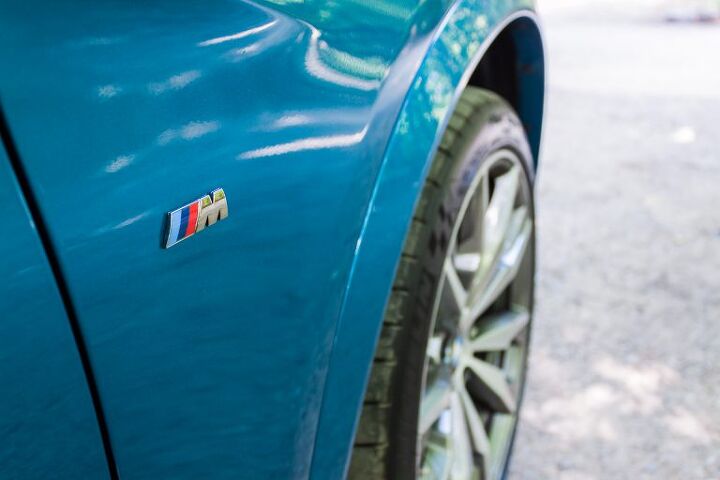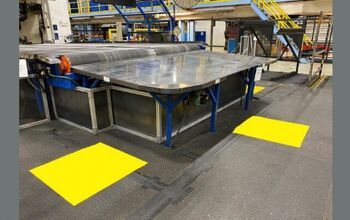BMW's Not Entirely Breaking With Tradition

It’s quite possible a gasp of horror escaped from your lips after laying eyes on the upcoming BMW 2 Series Gran Coupe for the first time. Unmistakably front-drive in profile, the brand’s new entry point — which happens to be based on the X1 and X2 crossovers — saw fit to avoid front-drive-only models in North America.
The same goes for the X1 and X2, though overseas buyers can find themselves a Bimmer that only pulls, never pushes. Just don’t ever expect to find one bearing a coveted M badge, the automaker promises.
Speaking to Australia’s CarAdvice, BMW M boss Markus Flasch said high-performance badging will never appear on a front-drive car, just rear- or all-wheel drive models. Perhaps that’s already too broad a landscape, given some purists’ lack of enthusiasm for the upcoming M235i xDrive Gran Coupe and the X2 M35i. Still, it’s a nod towards tradition, and it’s in keeping with how rival Mercedes-Benz configures its AMG-badged products.
When asked if a front-drive M car is something the brand has up its sleeve, Flasch said, simply, “No, it’s not.”
“We have a very strong offering in the M2 so we figure there’s no need to have a high-performance car based on the 2 Series and then a performance car based on the 1 Series,” he added.
BMW just switched its 1 Series, which U.S. buyers can’t have, from rear-drive to a front-drive layout for the 2020 model year. Like the model’s 2 Series Gran Coupe platform mate, 1 Series models offered with xDrive are deemed worthy of an M. Expect to see an M135i hatch on the European market in short order.
As for the unrelated, rear-drive 2 Series coupe, that model’s M variant is a fun pocket rocket with lots of cred. It’s also almost single-handedly keeping the manual transmission alive in the brand’s U.S. lineup, and it doesn’t look to be going away anytime soon.
Calling it the brand’s “most charismatic and purest model,” Flasch said the automaker has a 2 Series follow-up in the works, and it will not arrive with anything but a rear-biased drivetrain.
“The M135i xDrive is very attractive in the performance segment but if you really want high performance, customers will always go for the M2,” he said.
[Images: Chris Tonn/TTAC, Kevin Mio/TTAC]

More by Steph Willems
Latest Car Reviews
Read moreLatest Product Reviews
Read moreRecent Comments
- VoGhost Interesting comments. Back in reality, AV is already here, and the experience to date has been that AV is far safer than most drivers. But I guess your "news" didn't tell you that, for some reason.
- Doc423 Come try to take it, Pal. Environmental Whacko.
- 28-Cars-Later Mazda despite attractive styling has resale issues - 'Yota is always the answer.
- 28-Cars-Later Try again.
- Doc423 It's a flat turn, not banked, which makes it more difficult to negotiate, especially if you're travelling a little too fast.



































Comments
Join the conversation
Front wheel drive cars can drive just fine when they're properly engineered. When BMW first brought over their Mini Cooper, my then-girlfriend was quick to order one. It was lots of fun to drive but fell apart in less than two years. I've also owned BMWs. I stopped buying BMWs when they stopped making good looking cars that drove better than higher quality alternatives. Would I buy a premium FWD car? Yes. Would I buy a FWD BMW? No, but mostly because their current offerings are comically hideous and there are companies that make cars that are just as nice to drive while being much better engineered and built.
It is a simple matter of ... powah. If your rears drive and fronts steer, you split the jobs. This works until the rears have too much power, like vette C5, C6 or C7. This almost never happens in normal commuter cars, so.... We go FWD. Cheaper to make and assemble, but now one set of wheels does nothing and the fronts do all the work. I've had a bunch of SAAB, GTi, etc and you can do a lot with FWD, but you are limited eventually. You need to be AWD above a threshold (think Nissan GT-R) because then you can get all the power to the ground with stability. An M car has a performance threshold that is too high for FWD only. VW-Audi's S3/Rtype is AWD.